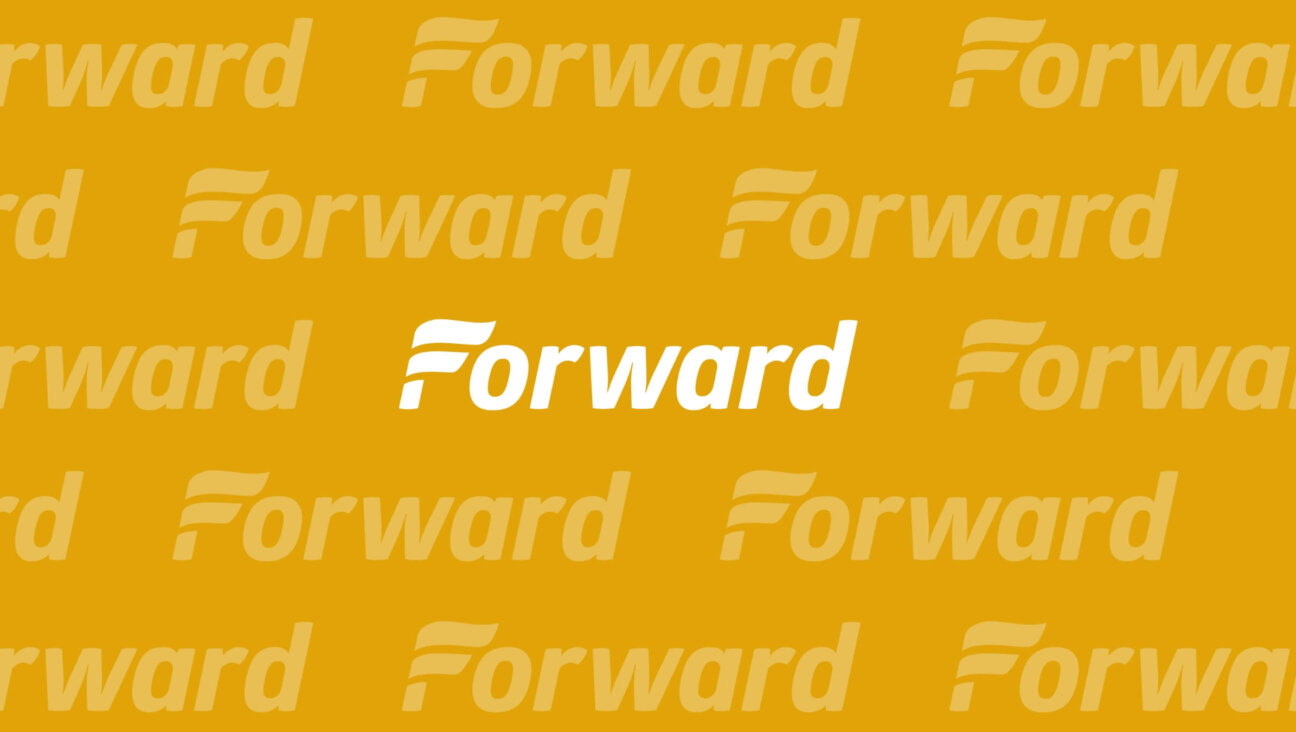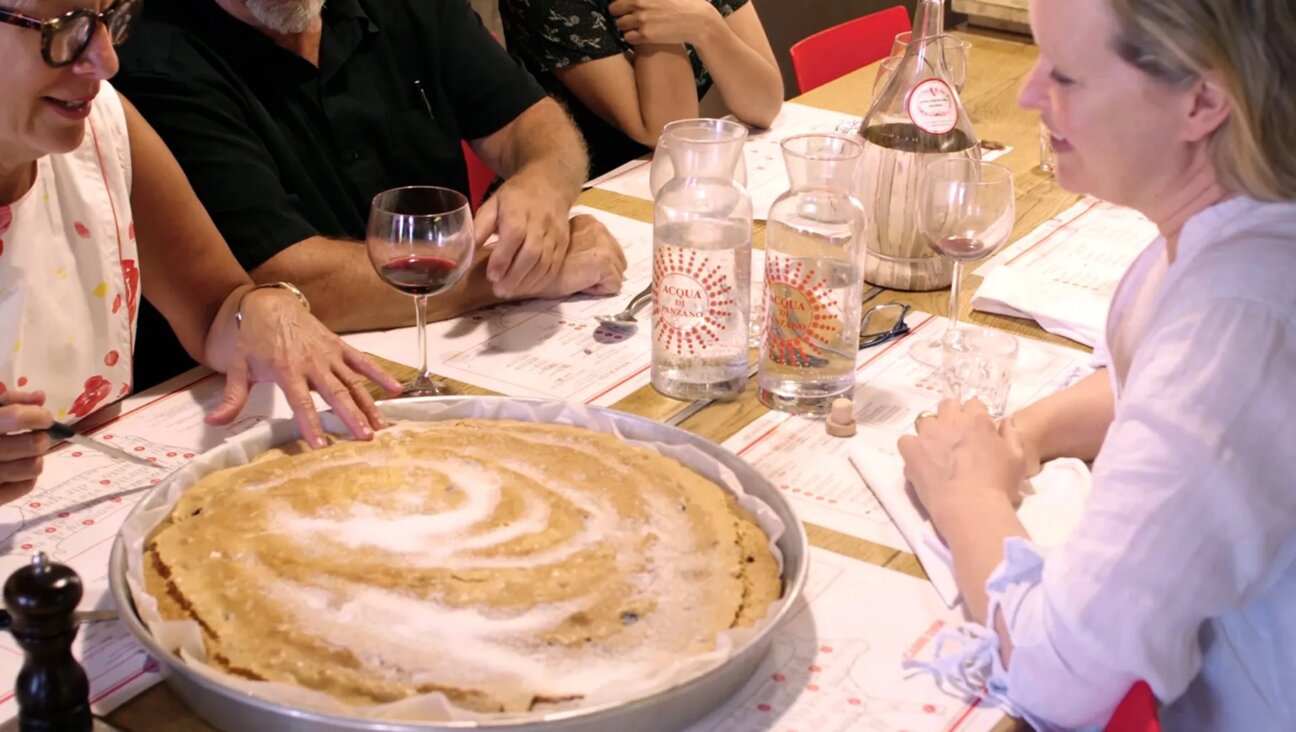Banana Charoset (No Kidding)

Graphic by Angelie Zaslavsky
An audacious twist on a Passover staple. Photograph by Michael Bennett Kress
Charoset is the element on the Seder plate that represents the mortar used by the Israelite slaves to build bricks.
Growing up, I had Seders almost exclusively at my parents’ house or at a handful of other relatives’ homes, and everyone made the same charoset: walnuts, apples and sweet wine all smooshed together.
It was only when I began hosting my own Seders that I discovered a wide variety of charoset recipes from every corner of the world where Jews have ever resided.
This recipe comes from my friend Melissa Arking, who is a fabulous cook. I added chopped walnuts at the end for some texture.
Makes 3 cups (Serves 25 for Seder)
Prep time: 10 minutes
Advanced prep: May be made 3 days in advance
Equipment: Cutting board • Knives • Measuring cups and spoons • Food processor • Box grater • Silicone spatula • Small serving bowl
3 large ripe bananas
2 cups ground walnuts
2 tablespoons sugar
½ teaspoon ground cinnamon
2 tablespoons sweet kosher wine
2 apples, shredded on the large holes of a box grater
1 cup walnut halves, chopped into 1/3-inch pieces
1) In the bowl of a food processor fitted with a metal blade, place the bananas, ground walnuts, sugar, cinnamon and wine. Process until the mixture comes together.
2) Transfer to a small bowl, add the apples and chopped walnuts, and stir to combine.
Note: You can buy nuts already ground, with the skin or without. I have a coffee grinder dedicated to grinding nuts. You can also use a food processor, as long as it can reduce the nuts to a fine grind, almost like a powder, when you need almond flour for baking. If you grind nuts for too long, you will end up with nut butter.
Reprinted with permission from New Passover Menu ©2015 by Paula Shoyer, Sterling Publishing Co., Inc.





















